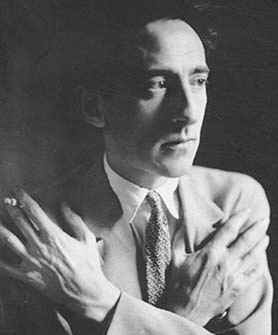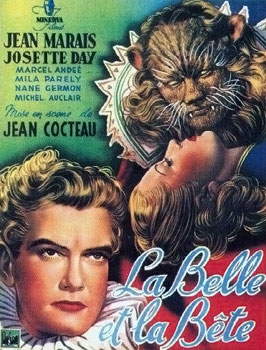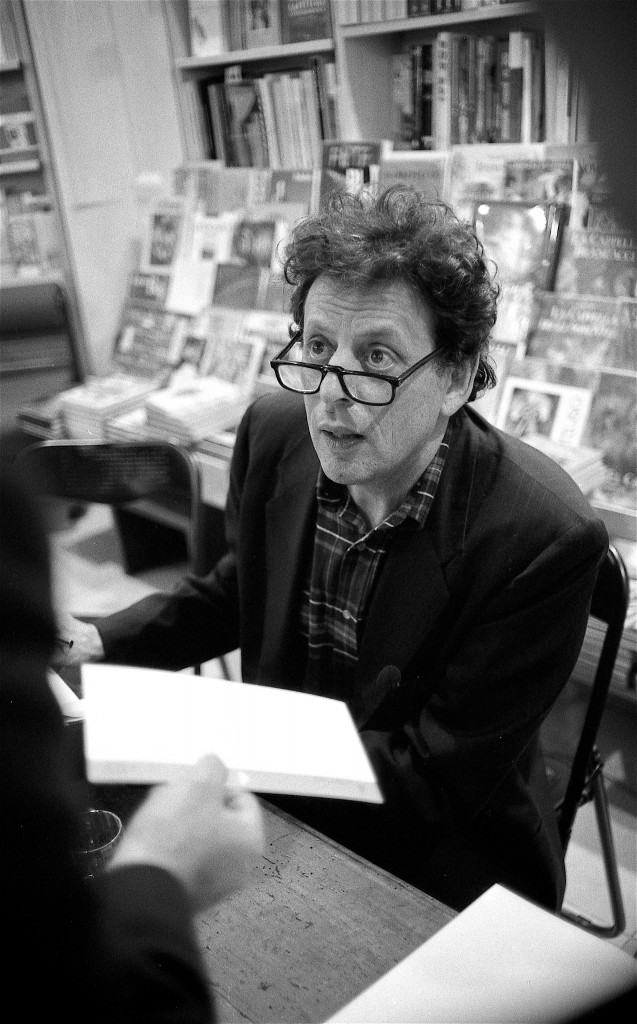“I’ve never been very interested in film,” Philip Glass said one morning this week at a long table set up in a rehearsal hall in the Portland Opera studios. “I don’t go to movies a lot.”

An odd confession from Glass, the 72-year-old composer who was in town for several days in conjunction with Friday night’s opening of the West Coast premiere of his 1993 opera Orphee at Portland Opera.
Orphee is, after all, one of a trilogy of operas that Glass has written based on the transcendent movies of Jean Cocteau (the others are La Belle et la Bete and Les Enfants Terribles).
And in a time when classical performers (Yo Yo Ma, Luciano Pavarotti, Andrea Bocelli) achieve celebrity but composers ordinarily don’t, Glass has become famous partly because of his forays into film, beginning with the hallucinatory Koyaanisqatsi in 1982.

Still, what he said made sense, especially when you consider the ways that he’s interacted with film — he’s hardly Hollywood-mainstreamed it — and the sentence he added immediately after his confession: “And yet film is an important aspect of the collaborative arts.”
Collaboration, he said, is one of the great attractions of the film world: It’s filled with extremely talented artists working toward a goal. The technology is amazing. And of course, compared to any of the performing arts, movies are seen: “The reach of film is extraordinary.”
How extraordinary? Glass recalled a story about the day Godfrey Reggio, the director of Koyaanisqatsi, called to tell him their movie was going to be shown on PBS:

“I said, ‘What’s that mean?’
“He said, ‘It means 6 million people will see it that night.’
“I practically fainted. That is not a number that comes into my work very often.”
As it turns out, Reggio’s guess of 6 million viewers was off the mark. Twenty million tuned in.
And that’s how a composer becomes famous, minimalism or maximalism or any other ism aside. Who outside of the pop world is even better-known than Glass as a composer? John Williams, composer for the Star Wars, Indiana Jones, Superman and first three Harry Potter movies.
So. The movies, yes. Glass noted that he did a little work on film crews to pick up extra money when he was a young man living in Paris, and even acted — pretty badly, he said wryly — in a few bit parts.
But he noticed something about film: “It was not an interpretive art form, it was a definitive art form.”
By that he meant, once a film is finished it’s frozen. That’s its form forever and ever, world without end, amen, amen. You can remake with new stars, but then it’s a new work. You can even do virtual scene-for-scene homages like Werner Herzog’s ravishing remake of F.W. Murnau’s Nosferatu or Gus Van Sant’s frame-for-frame re-do of Psycho, which had all of Hollywood scratching its collective head. But those, too, become their own discrete objects.
A play or a symphony or an opera, on the other hand, is an elusive, transformational thing, taking on new shapes and layers of meaning with each successive performance: The idea of Carmen today, after thousands of performances, is somehow different from anything Bizet imagined, Glass suggested.
“And then,” he said, “it occurred to me that maybe I could look at film in a different way.”
Continue reading Movies into operas: the great Cocteau/Glass experiment